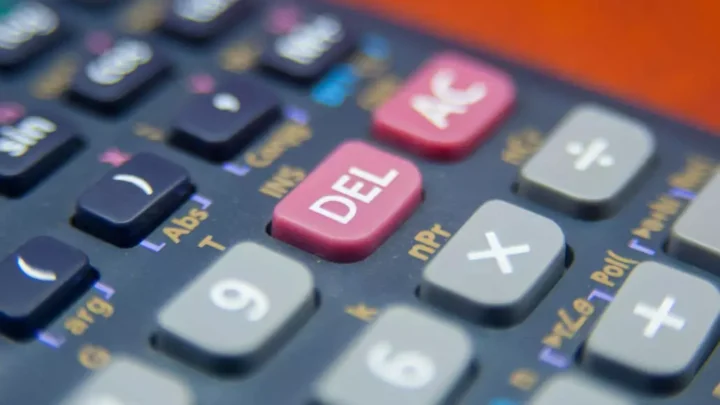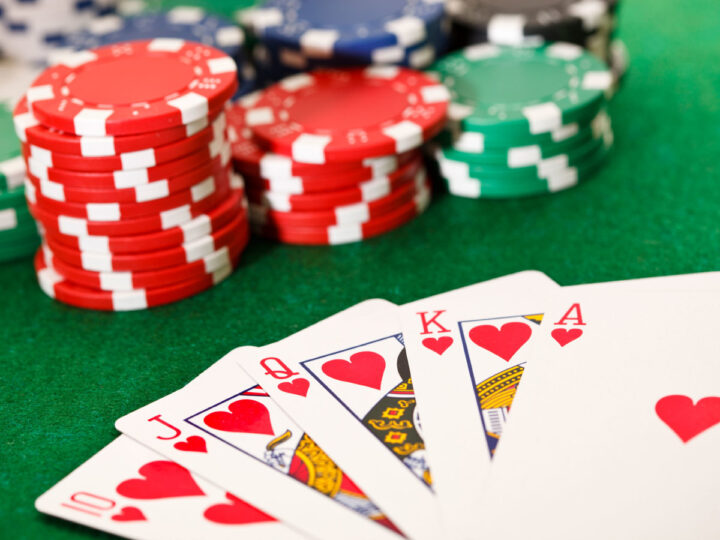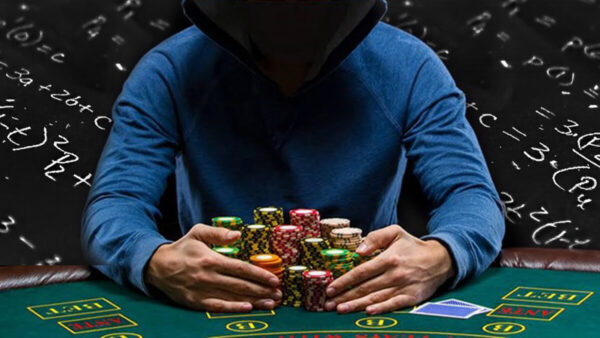Ever wondered if your math skills (or lack thereof) are going to make or break your chances at the Poker table? Modern poker is both a game of strategy and a game of mathematics. So, do you have to be good at math to be good at poker? Let’s find out!
Poker is often viewed as a purely strategic game that requires high levels of mathematical aptitude, and in some cases, this is true. However, it is important to remember that different forms of poker require very different skills, and not all players use the same methods to win.
Moreover, being able to master the mathematics behind poker does not guarantee profits; enjoying the game itself and strategic decision-making are still essential components if you want to be successful. Therefore, while it may come as a surprise to some people, mathematical prowess alone is not enough for one to become an expert at poker.
The importance of math in poker

Math Plays An Important Role In The Game Of Poker. It determines the chances that a certain hand will win and can help a player decide on their best course of action. While it is not essential or necessary to be brilliant at math in order to be successful at poker, some understanding of mathematical concepts is essential for winning consistently in the long term.
Players who understand the importance of this science and how it impacts their decisions are more likely to make profitable choices than those who do not pay attention to the numbers. Knowing when to call, raise, check or fold can depend on certain probabilities related to the odds and outs that players have with certain hands.
Even if you think math isn’t your strong suit, basic arithmetic and calculations can be quickly mastered by playing extensively with play money or low-stakes online games so that you can become more comfortable with mathematical concepts like expected value and pot equity without risking too much while you learn them. With enough practice, players can eventually become confident enough with math so that they are able to instinctively make profitable decisions without consciously using mathematics at all.
The basics of poker math

The basic components of poker math involve understanding a few core concepts: pot odds, implied odds, equity, and expected value.
Pot odds measure the probability of you making a better hand than your opponent in order to calculate the amount of money you should put into the pot based on the existing stakes. Implied odds consider the estimated future stakes, based on the likelihood that your opponent has a better hand. For example, if there is currently $100 in a pot and someone bets $20, then there are 5-to-1 pot odds (5:1). If you have already invested $20 into that same pot and your opponent then raises $50 more for a total bet size of $70, then it would be 3.5-to-1 implicit odds (3.5:1).
Equity calculates the chance each player has to win any given pot relative to their chip stacks or other players. Finally, the expected value is calculated by multiplying each outcome’s probability by its value and summing together for all possible outcomes.
Having basic poker math skills does not make you an instant master at winning at every table or every cash game or tournament situation you participate in; however, it will give you an understanding of when it’s profitable to continue playing hands in particular situations and when it might be beneficial to fold. Knowing these core concepts and how they relate to your own playing style is essential to creating reliable strategies which help increase chances of winning in online games like crazytimecasino.nl over time.
How to improve your skills?

As with any game that involves strategy, having a good understanding of the numbers involved is critical. For example, while your opponents may struggle to grasp basic concepts of odds and percentages, having a firm grasp on the math behind poker will give you an advantage.
Fortunately, improving your math skills for poker does not require an advanced degree or even a semester-long course. With some simple tips and practice, you’ll be able to spot key probabilities at the table more quickly and make confident decisions with confidence.
Some tips for improving your math skills for poker include utilizing software applications to focus on drills and simulations that help you understand the thought process of professional players; studying popular poker books on math principles such as probability and expected value (EV); engaging in practice hands with friends to understand game theory; learning about outs and stack sizes; incorporating charting into your practice sessions; educating yourself on pot odds, and understanding preflop hand ranges.
Examples of poker math in action

For example, knowing how to crunch numbers can help you decide when to call or fold based on the expected value of making a given move. This is an especially important concept when multi-tabling or playing in tournaments. Furthermore, understanding probability and odds will allow a player to effectively weigh the pot odds they are betting against the odds they must make their hand in order to profitably call a bet or raise.
Another important concept related to poker mathematics is counting outs – meaning being able to accurately estimate how likely it is that your draw will come in based on how many cards are remaining between your opponent and yourself. Counting outs also helps determine pot equity (your share of the pot) and thus dictates whether it’s worth betting for value or folding if you’re behind after making a hand.
Conclusion
In conclusion, poker does not require a high level of mathematical calculations or a deep understanding of mathematics in order to be successful. A solid understanding of odds and outs can be helpful and is necessary for the more complex types of poker. However, the average player can increase their winning chances simply by paying attention, practicing discipline, and staying consistent in their play. With enough practice and focus, anyone can become a successful poker player, even without having an advanced understanding of math.




